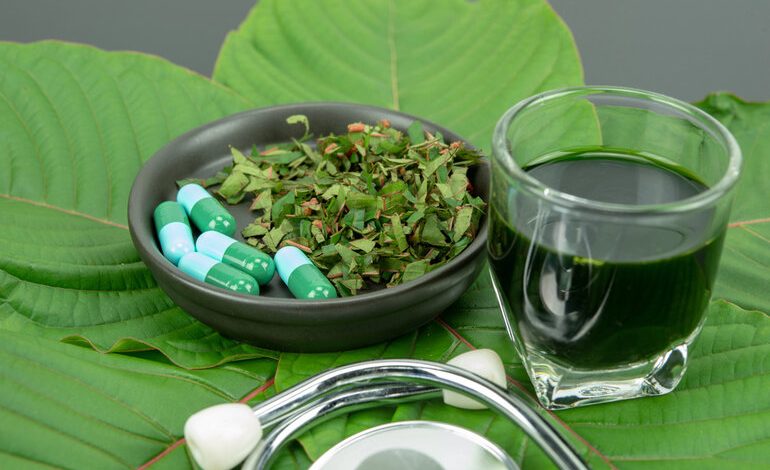
Quick Reference Table
Before exploring the details of quality assurance in kratom sourcing, here’s a snapshot of common quality control steps and their purpose for wholesale and bulk buyers.
| Quality Control Step | Purpose | Key Benefit |
| Third-Party Lab Testing | Verify purity and potency | Confirms product meets safety standards |
| Microbial Screening | Detect harmful bacteria and fungi | Prevents contamination-related health risks |
| Heavy Metal Testing | Ensure safe consumption levels | Protects against toxicity concerns |
| Batch Tracking | Trace product back to source | Facilitates recalls and accountability |
| Storage Condition Monitoring | Preserve product integrity | Maintains freshness over time |
Why Quality Control Matters in Kratom Procurement
Large-scale kratom sourcing—whether wholesale or bulk—isn’t just about securing the right price and quantity. Without a strong quality control system, even the most cost-effective purchase can lead to operational losses, customer dissatisfaction, or compliance issues.
For businesses, quality control ensures that every product meets defined safety and performance criteria before reaching the end user. It also protects brand reputation, minimizes legal risks, and supports long-term supplier relationships.
Setting Standards for Wholesale Kratom Orders
When ordering wholesale quantities, quality control begins before the product even arrives. Buyers should work with suppliers who have established protocols for testing, documentation, and packaging. This ensures consistency across shipments and reduces the risk of substandard product entering the supply chain.
Working with a reputable 7oh wholesale supplier, for instance, allows buyers to evaluate not just the kratom itself, but also the systems in place for verifying quality at multiple stages of processing.
Critical Lab Testing Procedures for Kratom
Lab testing is the cornerstone of quality assurance in the kratom industry. Independent, third-party testing provides objective verification of product safety and potency. The most common tests include:
- Alkaloid Profile Testing – Confirms levels of mitragynine and 7-hydroxymitragynine.
- Microbial Contamination Testing – Screens for pathogens like salmonella, E. coli, and mold.
- Heavy Metal Testing – Detects lead, arsenic, cadmium, and mercury within acceptable limits.
- Moisture Content Testing – Prevents mold growth and degradation during storage.
These results should be documented in Certificates of Analysis (COAs) and shared with buyers prior to shipping.
Preventing Contamination at the Source
Contamination can occur at various points in the kratom supply chain—from harvesting to packaging. Preventing contamination requires strict handling protocols and clean processing environments. Best practices include:
- Using sanitized drying racks and equipment
- Ensuring workers follow hygienic handling procedures
- Avoiding cross-contamination between batches
- Packaging in sealed, food-grade materials
For wholesale buyers, verifying these steps through supplier audits or virtual inspections can reduce the risk of receiving compromised product.
Batch Tracking and Traceability in Bulk Orders
Bulk kratom buyers face higher stakes when it comes to traceability. A single compromised batch can represent a significant portion of inventory. Batch tracking systems assign a unique code to each production lot, allowing buyers to:
- Identify the exact origin of the product
- Trace every step of the processing journey
- Isolate affected batches during recalls
- Maintain detailed compliance records
These systems are especially important for bulk 7oh orders, where the sheer volume of product makes manual tracking impractical.
Monitoring Storage and Shipping Conditions
Kratom’s quality is directly affected by how it’s stored and shipped. Poor environmental control can lead to loss of potency, mold growth, or contamination. Large-scale buyers should ensure:
- Temperature Stability – Avoid extreme heat or cold that can degrade alkaloids.
- Humidity Control – Keep moisture below levels that promote mold.
- Light Protection – Store in opaque packaging to prevent UV degradation.
- Secure Transport – Use carriers experienced in handling botanical products.
In some cases, suppliers may use sensors to log storage conditions throughout transit, giving buyers data to confirm that quality was maintained.
Quality Audits and Supplier Evaluation
Even trusted suppliers benefit from periodic quality audits. These evaluations may involve:
- Reviewing COAs and testing protocols
- Inspecting processing facilities (in-person or via video)
- Verifying sanitation and handling practices
- Confirming compliance with local and international regulations
Audits help maintain high standards and signal to suppliers that quality is a non-negotiable priority.
Implementing Internal Quality Checks Upon Arrival
Quality control doesn’t end when the shipment arrives. Buyers should conduct internal inspections before accepting and storing the product. This may involve:
- Visual inspection for foreign matter or discoloration
- Random batch testing to confirm supplier results
- Checking packaging integrity for damage or tampering
- Comparing batch codes to purchase records
These steps provide an added layer of protection and ensure that only compliant product moves into active inventory.
Building a Long-Term Quality Assurance Strategy
Sustaining quality control in kratom procurement requires an integrated approach that combines supplier partnerships, scientific testing, and robust internal processes. The most effective strategies:
- Use a standardized checklist for every shipment
- Maintain a database of supplier performance over time
- Invest in staff training for quality inspection
- Set clear quality expectations in purchase contracts
By embedding quality assurance into daily operations, businesses can safeguard both their supply chain and their brand reputation.
Conclusion
In large-scale kratom sourcing, quality control is as important as price and quantity. From lab testing and contamination prevention to batch tracking and storage monitoring, every step plays a role in ensuring product integrity.
Wholesale buyers benefit from consistent supply and flexibility, but still require rigorous checks at each delivery. Bulk buyers, with their larger volume commitments, face greater risks and therefore must demand equally strong quality systems from their suppliers.
By prioritizing quality at every stage—selection, purchase, transit, and receipt—businesses can secure safe, reliable kratom products and build trust with their customers for the long term.
